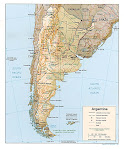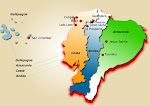.
The difference in culture amongst the volunteers between reserves is as marked as the difference in physical location.
In Tsuraku we were few, and we struggled to find a balance between personal space and communication. We suffered from cabin fever in that small house amongst a community that kept to itself, yet although we were stressed and frustrated with each other we also in a sense developed a bond of mutual concern.
The number of volunteers at Bilsa varied from five in my first week to over a dozen (plus a party of twenty or so students for one week).
When the scientists weren´t around the house was a little more sedate. There were less voices bubbling over each other in the evenings, the guitars hung still against the wall, and when we went to La Yecita there were less dancing partners.
But even when we were just volunteers, we were animated and enthused and concerned for the station and each other. We worked like mules, yet always had time to talk and laugh along the way. With few exceptions we wanted to learn, we wanted to help, and we wanted to take part.
The dynamic worked, is the end of what I will say about the Bilsa station. I couldn´t afford the internet time if I continued to write about it, even if I wasn´t saving my notes for the project.
It is now my ungrateful displeasure to write about my current station, while all the time my heart aches to think that I have to wait another month before I can feel the mud of the jungle beneath my booted feet again.
___________________________________________
Galapagos is famous. We have all heard of how Darwin found in the species variation of the islands the inspriration and examples to demonstrate his studies on evolution, and we imagine a wild and inhospitable terrain, rich with strange creatures and wild island noises. I suppose that when Darwin first arrived on San Cristobal it may have been so, but when I arrived I was surprised to find myself in a highly developed port filled with restaraunts, gift shops and internet cafes.
This is the smartest, wealthiest, most gringo friendly place I have seen since arriving in Ecuador. In fact, it barely feels like Ecuador. Many of the locals speak English to you, even when they know you speak Spanish, because it is second nature to them to speak English to gringos. The music in the bars is English or American (or Bob Marley) on most nights, and even the pool table is governed by American rules.
The horizon is sprinkled by American, European or Japanese owned yaghts that carry tourists from island to island without the hassle of having to interact with locals or put money into the local economy. Meanwhile the tourists (and volunteers) who do stay at port are astounded by how cheap the prices are. They don´t realise or care that the price of a meal on the sea front is often 5 times more expensive than a better meal on the mainland, because they have no interest in Ecuador proper.
This is tourist land. And this is reflected in the volunteer reserve. Firstly, it is significantly more popular and populated by volunteers than other Jatun Sacha stations. Many of these volunteers are motivated by the appeal of GALAPAGOS rather than an invested interest in ecology in general, which means that they may only stay for a week or so and not be overly interested in working. Few of the volunteers have any great interest in Ecuador proper, because they have come directly to Galapagos and will go home after they have done their own island tours. The majority are around 20- 21 years old, and mainly interested in meeting people of the same age and opposite sex.
For these, and various other reasons, I do not find myself on the same wavelength as most of the other volunteers. Obviously there are exceptions, and I am certainly not lonely, but on the most part they have no interest in me and I have no inclination to make myself socially available. They are a group of nice young people who are happy to be on the famous Galapagos, and I am a slightly jaded, travel worn woman who would rather be back in the jungle. I don´t want to criticise, only to explain that I can´t help but compare the difference.
Obviously, because there are so many young volunteers to manage, the working of the reserve has to be governed rather tightly. This means that the work is apportioned systematically, rather than according to inclination and/or experience, and that meal and social times are strictly regimented. It is like a rather expensive boot camp for young tourists. The work itself is hard, as it is on the other stations, but lacks the motivating sense of purpose and passion. Finally, there is no real research taking place, the environment around the station is largely uninspiring, and no one has time or inclination to discuss the ecology of the area in any depth.
In short, I feel as though at the station I work very hard, and get very little personal in return.
I am sure that if this had been my first station I would have loved the difference of station living; the spartan lifestyle would have been refreshing and I would not have known that there could be more to it. But I have suppose that now I have seen how it is elsewhere, I feel the difference between the dirty reality of the mainland and the golden egg of Galapagos, and I have experienced a genuine passion for conservation and a reserve that makes it work, that makes your work count.
I have been volunteering for almost four months now, and right now I do not feel the urge to throw myself into the volunteer work here as I have previously. It just doesn´t sit right with me. The reserve is the wealthiest of all under Jatun Sacha´s control, and my money is already in the bank. They have an overabundance of volunteers, and I don´t feel at all inclined to break my back on mundane chores and panic that I will be reprimanded for arriving minutes late for lunch.
And so I have decided to take every opportunity to escape the station.
This weekend I went scuba diving, and stayed at port until wednesday, which means I have one work day and one ´hike´day before another weekend at port. Then I have another full week of volunteering. I will work as hard as I ever do, which is pretty hard now that my strength and machete skills are honed. When I work, regardless of whether my heart is in it or not, I prefer to work hard. So they should have no reason to complain about me, even if after that week I am buggering off on a four day tour to see the islands, and flying back to Quito directly rather than returning to the station as I was originally supposed to. Ya me voy, para Bilsa trabajar. I am heading back to work at Bilsa, where I belong.
Galapagos, schmalapagos.
Subscribe to:
Post Comments (Atom)



No comments:
Post a Comment